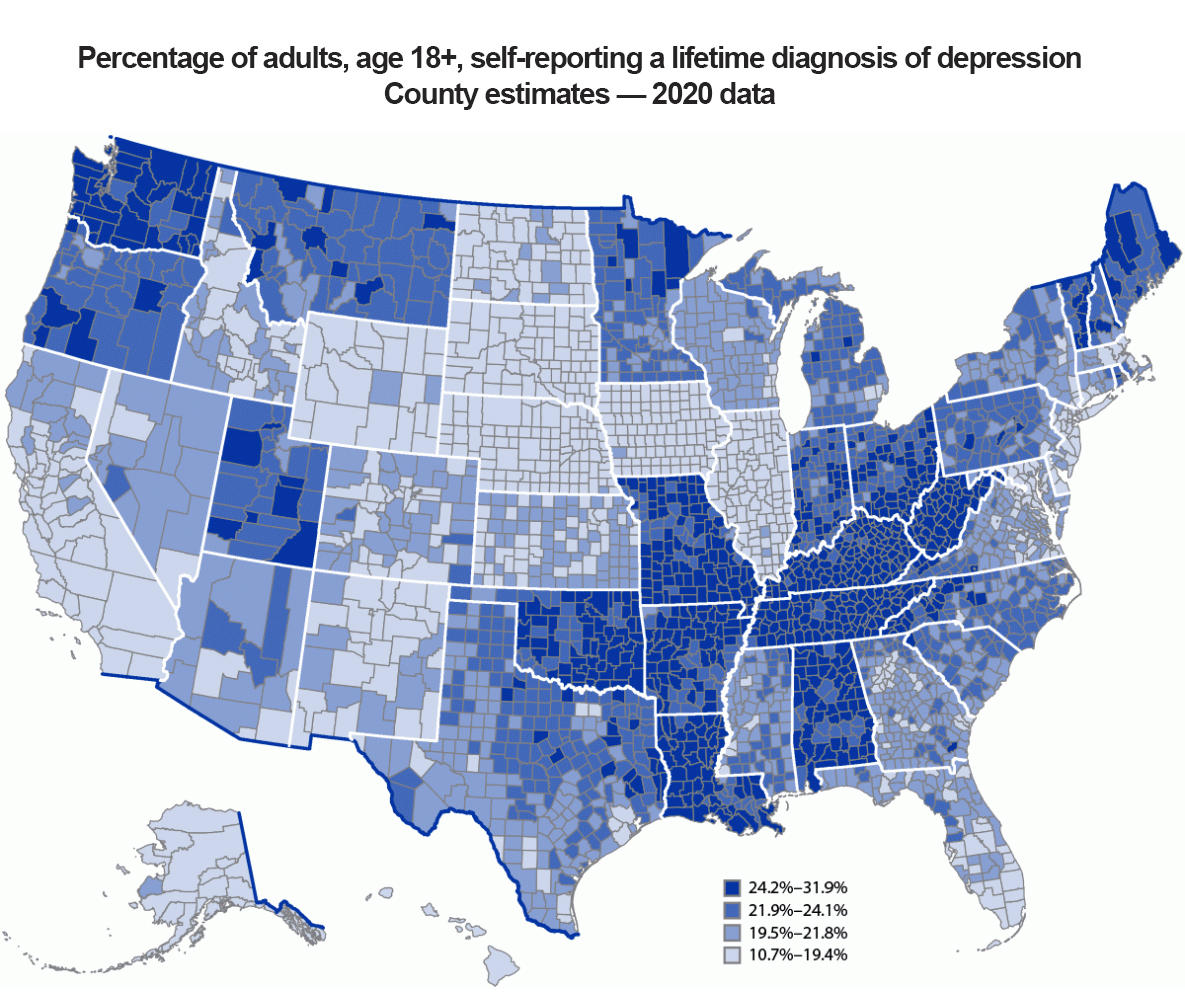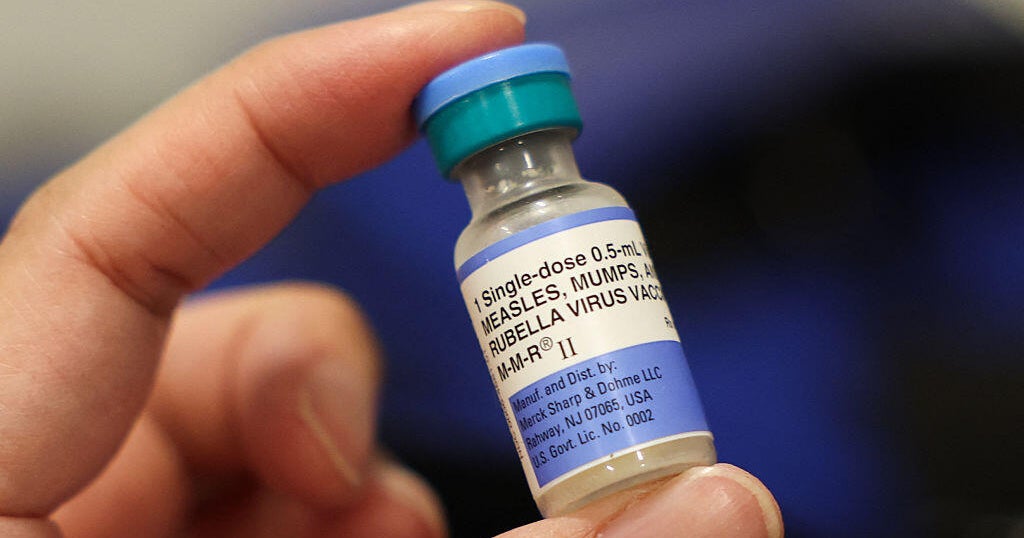Nearly 1 in 5 adults have experienced depression — but rates vary by state, CDC report finds
Depression rates in the United States can vary widely depending on where you live, according to a new report from the Centers for Disease Control and Prevention.
Using data collected in 2020, the report, released Thursday, found 18.4% of U.S. adults — nearly 1 in 5 — reported having ever been diagnosed with depression.
The numbers were much higher in some communities than others. When looking at state levels specifically, estimates ranged from 12.7% in Hawaii to 27.5% in West Virginia. County-level estimates ranged even wider, from 10.7% to 31.9%.
"Most of the states with the highest prevalence were in the Appalachian and southern Mississippi Valley regions," the researchers note.
After West Virginia, the 10 states with the highest rates were Kentucky, Tennessee, Arkansas, Vermont, Alabama, Louisiana, Washington, Missouri and Montana.
Why does depression differ by state?
"Socioeconomic issues such as homelessness, food insecurity, living at or below the poverty level, decreased family cohesion — all of those increase the rates of depression," psychiatrist Dr. Steven Schlozman told CBS News Philadelphia.
Researchers also note other chronic diseases prevalent in these locations may be linked to depression rates.
"Depression is a comorbidity for many chronic diseases, including diabetes, arthritis and cardiovascular diseases," the report reads. "These diseases also occur in higher concentrations in states within the Appalachian region, suggesting that geographic variation in the prevalence of depression might partially reflect patterns of other chronic diseases."
In addition to location, other factors like age, gender and education played a role, with the prevalence of depression higher in women, younger adults and those with lower education levels.
The report highlighted age-specific prevalence of depression was highest among those aged 18 to 24 at about 21.5%.
"Eighteen to 24-year-olds right now have a whole lot on their minds that previous people of that age group did not," Schlozman said. "They're worried about the climate, they're worried about the future of our nation, they're worried about the future of the world, and then you add to that the echo chamber of social media that affects them more than it affects people who are older."
Depression is a major contributor to mortality, disability and economic costs in the United States. The authors of the report say this data could help decision-makers "prioritize health planning and interventions in areas with the largest gaps or inequities."
"Examining the geographic distribution of depression at the state and county levels can help guide state- and local-level efforts to prevent, treat and manage depression," they wrote.
This report comes as the country grapples with a rise in mental health struggles particularly affecting young people.
Results from a CDC survey earlier this year added to the evidence that teen mental health is in crisis, with particularly concerning numbers surrounding teen girls. The survey found around 1 in 3 high school girls in the U.S. have seriously considered attempting suicide and more than half of teen girls, 57%, reported feeling "persistently sad or hopeless" — a record high.
Alyssa Mairanz, a licensed mental health counselor and owner of Empower Your Mind Therapy, previously told CBS News the numbers are distressing, yet unfortunately, she "wasn't surprised."
"There are a few things that teens nowadays deal with that older generations didn't have to deal with," Mairanz notes, including social media, which can lead to harmful comparisons and online bullying, as well as the impact of the COVID-19 pandemic on developing minds.








